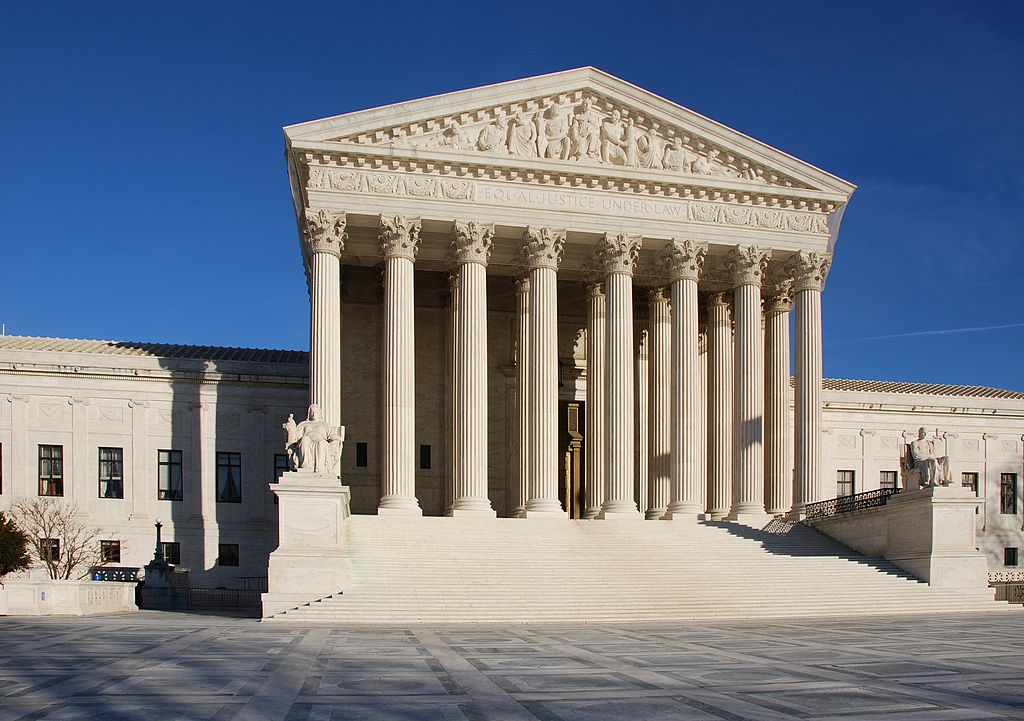On July 6, the Supreme Court of the United States (SCOTUS) issued opinions in two linked cases, Colorado Department of State v. Baca and Chiafalo v. Washington, and in the case Barr v. American Association of Political Consultants Inc. The cases were argued during the court’s October Term for 2019-2020. According to SCOTUSblog, this is the first time the court has issued opinions in July since 1996.
Chiafalo v. Washington
The case: Chiafalo v. Washington originated from the Washington Supreme Court. The case concerned state-appointed presidential electors who voted contrary to Washington state law requiring that they cast their electoral college ballots for the winner of the popular vote. When the case was granted review by SCOTUS, it was consolidated with the case Colorado Department of State v. Baca. On March 10, 2020, the cases were no longer consolidated but remained linked. Chiafalo v. Washington was argued before SCOTUS on May 13, 2020.
The issue: Whether the enforcement of a Washington state law that threatens a fine for presidential electors who vote contrary to how the law directs is unconstitutional because (1) a state has no power to legally enforce how a presidential elector casts his or her ballot and (2) a state penalizing an elector for exercising his or her constitutional discretion to vote violates the First Amendment.
The outcome: The U.S. Supreme Court affirmed the Washington Supreme Court’s decision in a unanimous ruling, holding that a state may enforce an elector’s pledge to support their party’s nominee and the state voters’ choice for President of the United States. Justice Elena Kagan delivered the opinion of the court.
Colorado Department of State v. Baca
The case: Colorado Department of State v. Baca originated from the U.S. Court of Appeals for the 10th Circuit. The case concerned state-appointed presidential electors in Colorado who voted contrary to a state law that requires electors to cast their electoral college ballots for the winner of the popular vote. Colorado Department of State v. Baca was argued before the SCOTUS on May 13, 2020. Justice Sonia Sotomayor recused herself from this case and took no part in the decision.
The issue: 1. Whether a presidential elector who is prevented by their appointing State from casting an Electoral College ballot that violates state law lacks standing to sue their appointing State because they hold no constitutionally protected right to exercise discretion. 2. Does Article II or the Twelfth Amendment forbid a State from requiring its presidential electors to follow the State’s popular vote when casting their Electoral College ballots.
The outcome: The court reversed the ruling of the 10th Circuit in an 8-0 per curiam decision, holding that the decision is reversed for the reasons outlined in the court’s opinion for Chiafalo v. Washington.
Barr v. American Association of Political Consultants Inc.
The case: This was a case concerning the Telephone Consumer Protection Act’s debt-collection exemption and whether or not it violated the First Amendment’s free speech clause. It originated from the U.S. Court of Appeals for the 4th Circuit. The case was argued before SCOTUS on May 6, 2020.
The issue: Whether the government-debt exception to the Telephone Consumer Protection Act of 1991’s automated-call restriction violates the First Amendment, and whether the proper remedy for any constitutional violation is to sever the exception from the remainder of the statute.
The outcome: The U.S. Supreme Court affirmed the 4th Circuit’s judgment in a 6-3 opinion, holding that the 2015 government-debt exception to the 1991 federal ban on robocalls to cell phones added an unconstitutional exception to the law and that the exception is severable from the remainder of the statute. Justice Brett Kavanaugh delivered the opinion of the court.
As of July 6, 2020, the court had issued decisions in 56 cases this term. Between 2007 and 2018, SCOTUS released opinions in 850 cases, averaging 77 cases per year.
Additional reading:


